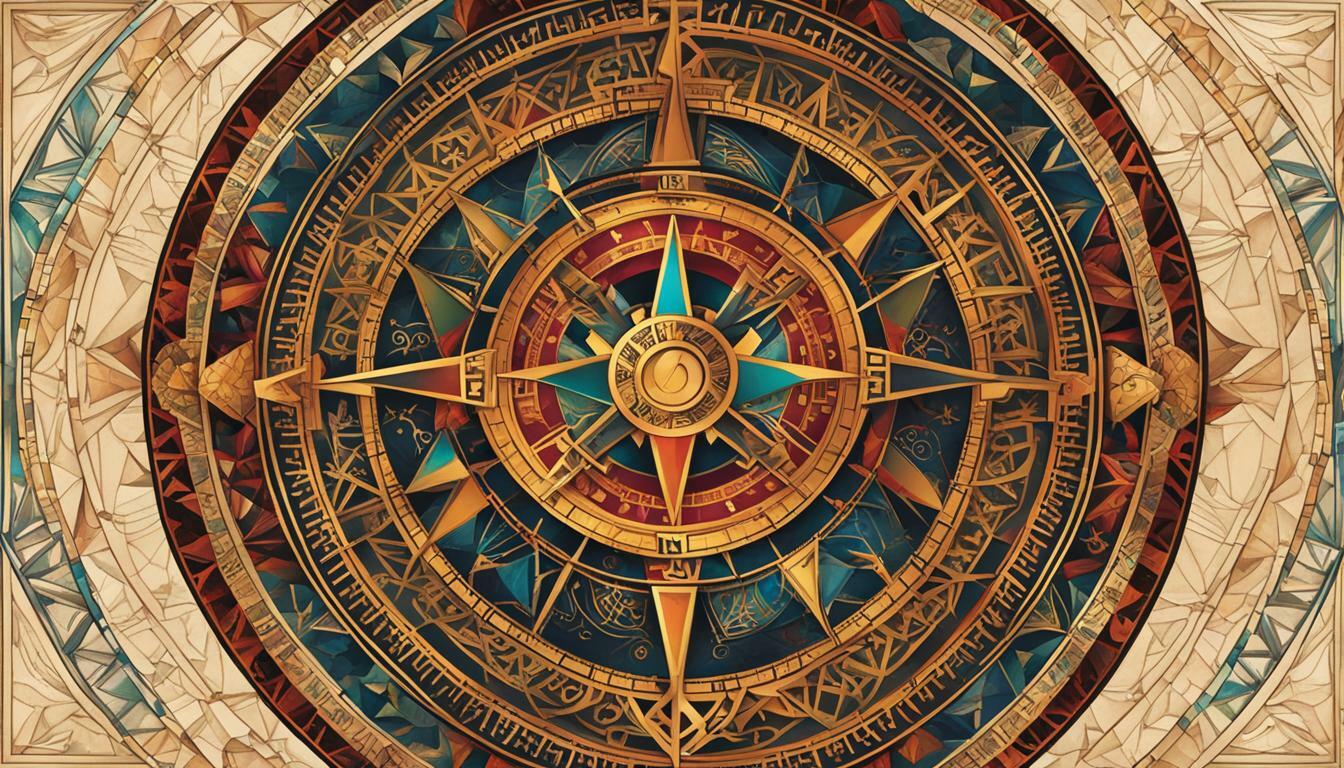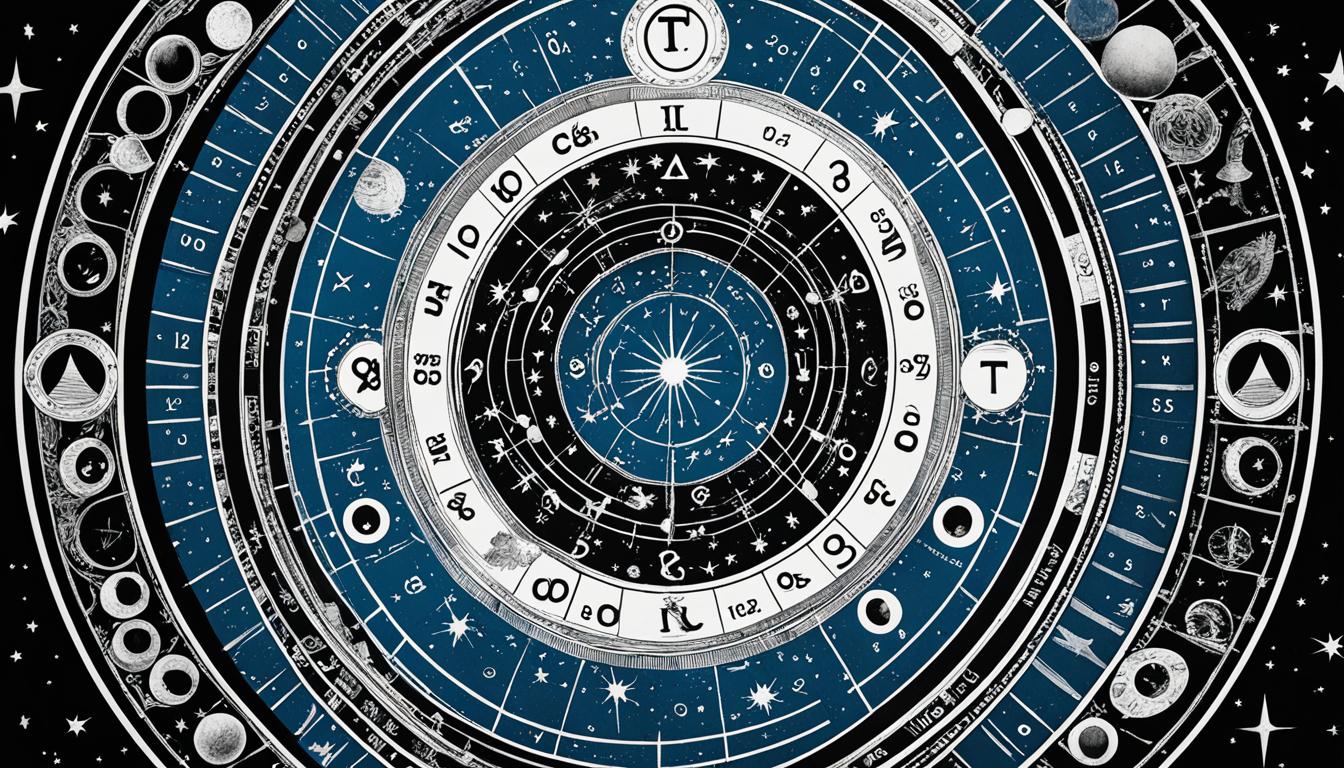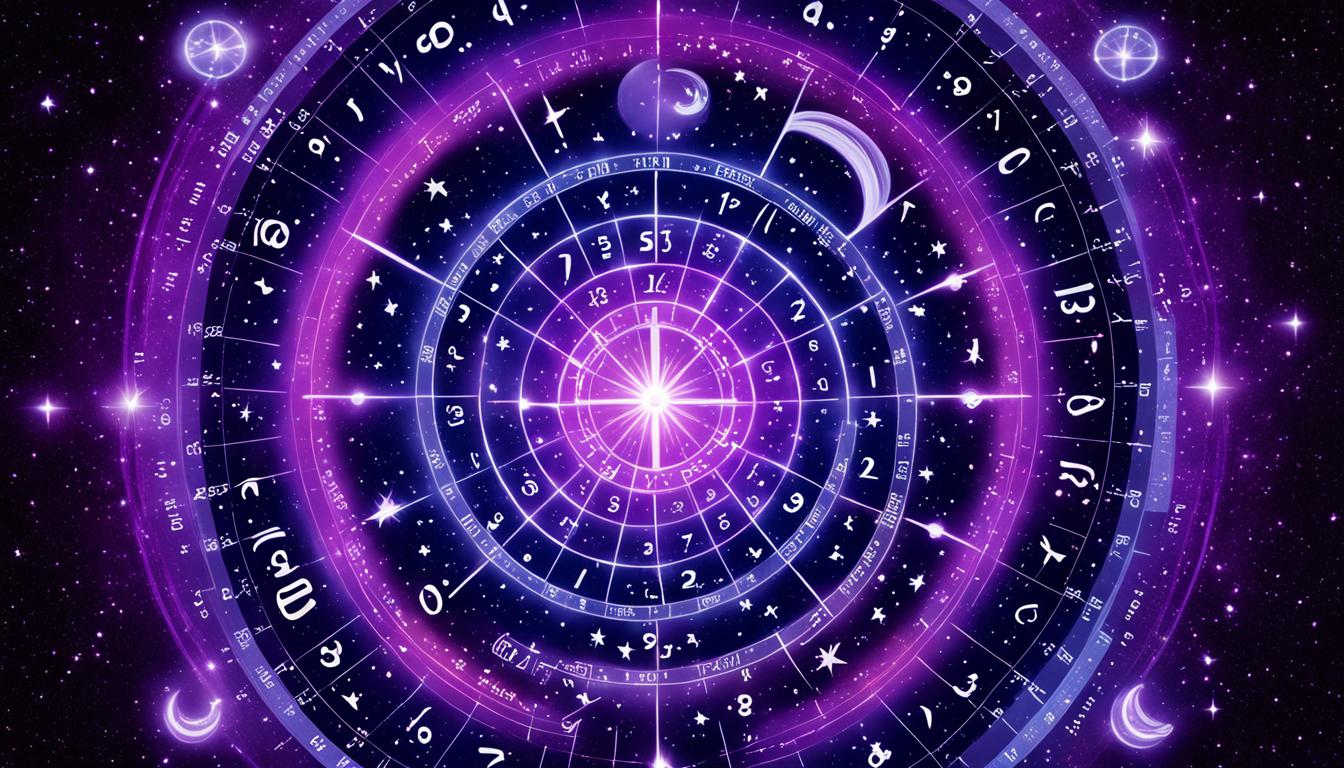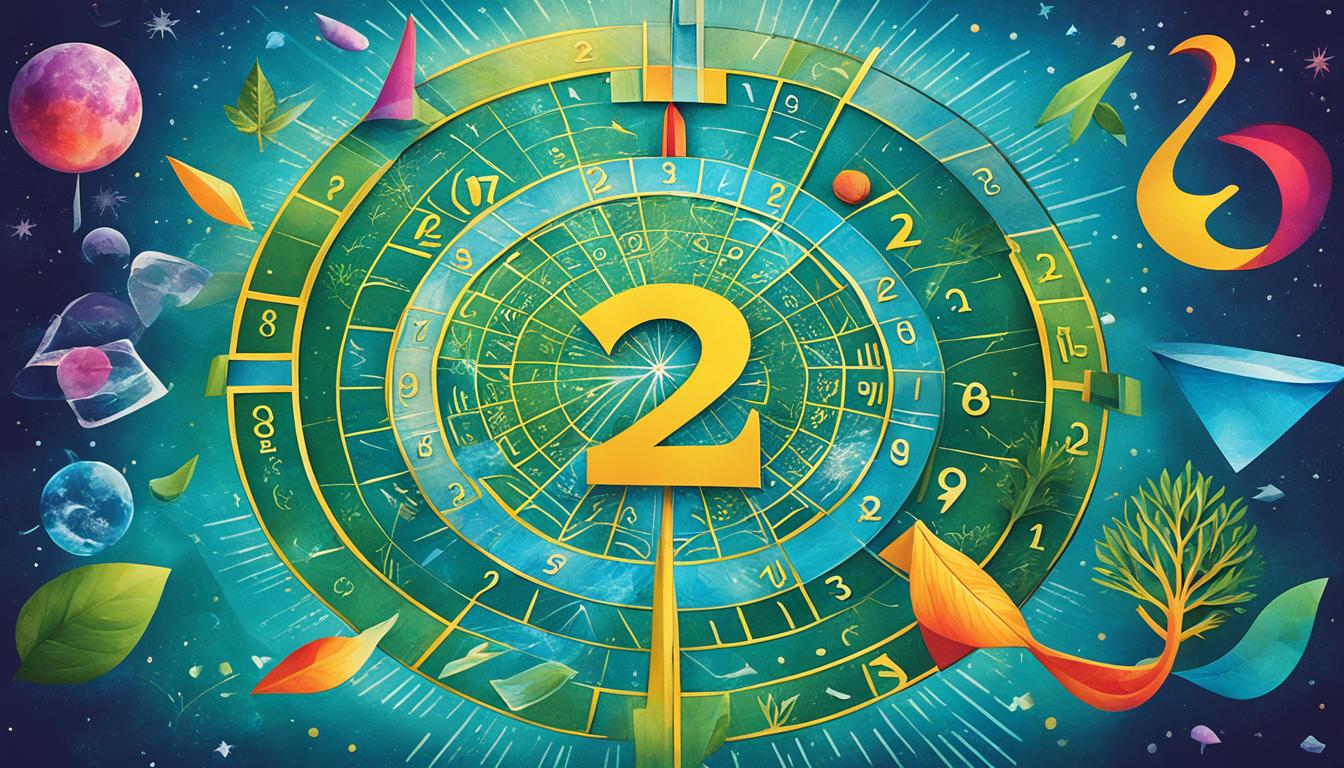Numerology is a fascinating study that has been practiced across various cultures, offering unique insights into the power of numbers. It dates back to ancient civilizations such as Babylon, Egypt, China, Rome, and Japan, where different forms of numerology were used to understand the relationship between numbers and events in life.
One of the key figures in the development of modern numerology is the Greek philosopher Pythagoras, who recognized the significance of numbers and their vibrational energies. Numerology assigns values to each alphabet, allowing us to gain a deeper understanding of ourselves and the world around us.
Core numbers in numerology, such as the life path number, expression number, soul urge number, personality number, and birthday number, provide valuable insights into an individual’s purpose, talents, desires, and how others perceive them. By calculating these core numbers, we can unlock a wealth of information about ourselves and gain clarity in various aspects of life.
- Numerology is a study that has been practiced across cultures, offering insights into the power of numbers.
- It originated in ancient civilizations such as Babylon, Egypt, China, Rome, and Japan.
- Pythagoras contributed to the development of modern numerology.
- Core numbers in numerology provide insights into an individual’s purpose, talents, desires, and how others perceive them.
- Numerology can help individuals gain clarity and navigate various aspects of life.
Origins and History of Numerology
Numerology has a rich history that dates back to ancient times, with diverse cultural practices and principles influencing its development. Ancient civilizations such as Babylon, Egypt, China, Rome, and Japan all had their own unique forms of numerology. These cultures believed in the power of numbers and their ability to reveal insights about life and personality.
One of the most influential figures in numerology’s history is the Greek philosopher Pythagoras. Pythagoras is considered the father of modern numerology and made significant contributions to its principles and practices. He believed that numbers possess vibrational energies and that understanding these energies could unlock the secrets of the universe.
Various forms of numerology emerged throughout history, each with its own set of principles and practices. Chaldean numerology, also known as “Mystic Numerology,” originated from ancient Chaldea and is based on assigning numerical values to the letters of the alphabet. Kabbalah numerology, rooted in Jewish mysticism, associates numerical values with Hebrew letters to gain insights into the divine.
In the Tamil culture of India, numerology is deeply embedded in everyday life. Tamil numerology assigns numerical values to the letters of the Tamil alphabet and is used to determine the compatibility of names, predict future events, and guide important decisions. Western or Pythagorean numerology, based on the teachings of Pythagoras, is widely practiced today and focuses on the relationship between numbers and an individual’s life path.
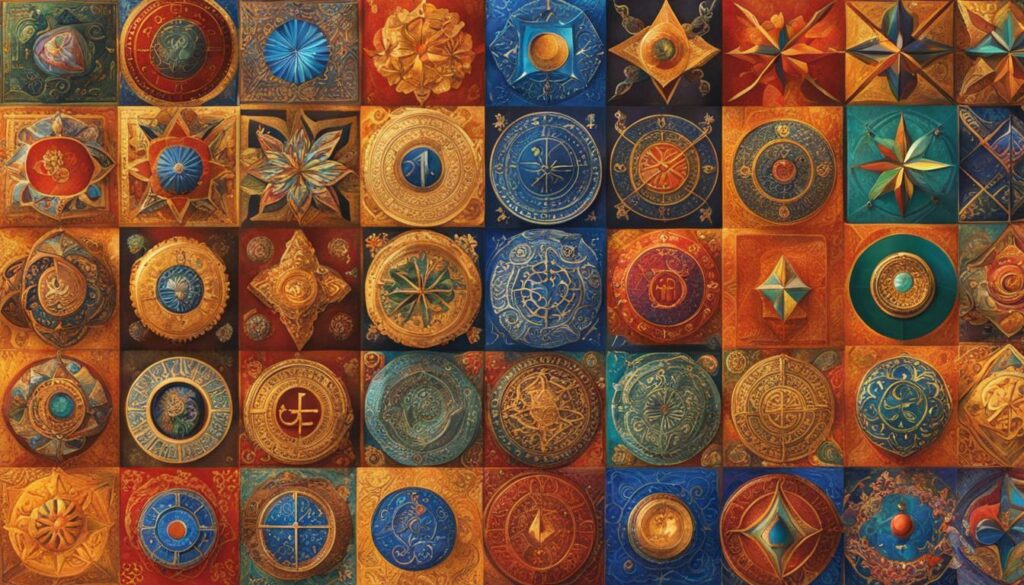
“Numerology is a tool for self-discovery and personal growth, providing guidance and clarity in various aspects of life.”
Numerology serves as a powerful tool for self-discovery and personal growth. By analyzing core numbers such as the life path number, expression number, soul urge number, personality number, and birthday number, individuals can gain a deeper understanding of themselves and their life’s purpose. These numbers reveal insights into strengths, desires, talents, and how others perceive them.
Calculating core numbers involves adding or reducing digits from birth dates and names. This process enables individuals to uncover hidden patterns and reveal their true potential. Numerology provides a framework for understanding the energies and vibrations that shape our lives, helping individuals make informed choices and navigate challenges with confidence.
- Life path number: Represents an individual’s life purpose and destiny.
- Expression number: Reflects how an individual expresses themselves to the world.
- Soul urge number: Reveals an individual’s innermost desires and motivations.
- Personality number: Provides insights into how others perceive an individual.
- Birthday number: Reflects an individual’s natural talents and abilities.
Numerology is not only about numbers; it also incorporates the concept of angel numbers. Angel numbers are repeated numbers that carry messages from the universe. These numbers appear as signs and synchronicities, guiding individuals on their spiritual and personal journeys.
While numerology is not a science, it is based on scientific principles and the universal laws of energy. When practiced with knowledge and understanding, numerology can provide accurate insights and valuable guidance. It is important to approach numerology as a tool for self-reflection and personal growth, using it alongside other sources of wisdom and intuition.
Understanding Numerology Basics
To fully grasp the power of numerology, it is essential to understand its basic principles and the significance of core numbers. Numerology is the ancient practice of studying the relationship between numbers and their influence on various aspects of life. It is believed to have originated in Babylon and Egypt, with different forms of numerology being practiced in ancient China, Rome, and Japan. Greek philosopher Pythagoras is considered the father of modern numerology.
Numerology assigns a numerical value to each alphabet, allowing us to calculate different core numbers that provide insights into an individual’s life and personality. These core numbers include the life path number, expression number, soul urge number, personality number, and birthday number. Each number reveals specific aspects of an individual’s purpose, talents, desires, and how they are perceived by others.
Calculating core numbers involves adding or reducing digits from birth dates and names. For example, the life path number is derived from the sum of the digits in one’s birth date. These core numbers act as a roadmap, providing guidance and clarity in various aspects of life. They help individuals uncover their strengths, navigate challenges, and gain a deeper understanding of their life’s purpose.
The Significance of Core Numbers
| Core Numbers | Meaning |
|---|---|
| Life Path Number | Reveals an individual’s destiny and life purpose. |
| Expression Number | Reflects one’s natural talents and abilities. |
| Soul Urge Number | Represents inner desires and motivations. |
| Personality Number | Shows how others perceive an individual. |
| Birthday Number | Reflects an individual’s personal strengths and weaknesses. |
By understanding these core numbers, individuals can gain valuable insights into their unique qualities and navigate their life journey with greater self-awareness. Exploring numerology can provide a fresh perspective, helping individuals align their actions and decisions with their true purpose.
However, it is important to note that while numerology is not a science, it is based on scientific principles and the universal laws of energy. Practiced by knowledgeable individuals, numerology can provide accurate insights. Yet, it should not be solely relied upon, but rather used as a tool for self-reflection and personal growth.
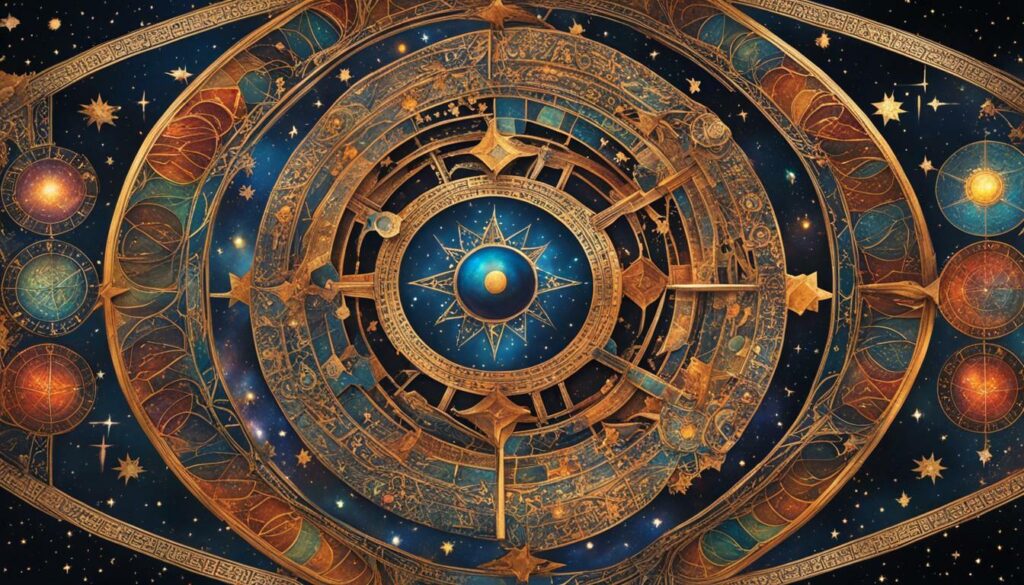
*Image source: Numerology Basics Image*
Numerology is not limited to a single culture but has found its way into different traditions and belief systems across the globe. Cultures around the world have incorporated numerology into their daily lives, recognizing the significance of numbers in shaping their destiny and understanding the world around them.
In Chaldean numerology, practiced by ancient Babylonians, each letter is assigned a number, and these numbers are used to interpret the vibrational energy associated with names and dates. The Kabbalah tradition, rooted in Jewish mysticism, utilizes a unique system of assigning meanings to numbers and letters, offering insights into spiritual aspects of life.
On the other side of the world, Tamil numerology, derived from ancient Indian practices, focuses on the vibrational energy of each individual’s birth date and name. Japanese numerology, influenced by Chinese philosophy, also plays a significant role in their culture, guiding important decisions, such as choosing auspicious dates for events and weddings.
Western/Pythagorean numerology, the most widely known and practiced form of numerology, is based on the teachings of Greek philosopher Pythagoras. It assigns numerical values to letters, allowing individuals to gain insights into their personality traits, life path, and destiny.
To provide a comprehensive view of numerology across cultures, here’s a table highlighting some of the key characteristics of different numerology traditions:
| Numerology Tradition | Key Features |
|---|---|
| Chaldean Numerology | Assigns numerical values to letters, interprets vibrational energy of names and dates |
| Kabbalah Numerology | Uses a unique system to assign meanings to numbers and letters, focuses on spiritual aspects of life |
| Tamil Numerology | Derives insights from the vibrational energy of birth dates and names |
| Japanese Numerology | Influenced by Chinese philosophy, guides decisions based on auspicious dates for events |
Regardless of the cultural context, numerology provides individuals with a powerful tool for self-discovery and gaining deeper insights into their lives. By understanding the vibrational energies associated with numbers and their meanings, we can unlock our true potential and make informed decisions that align with our purpose.
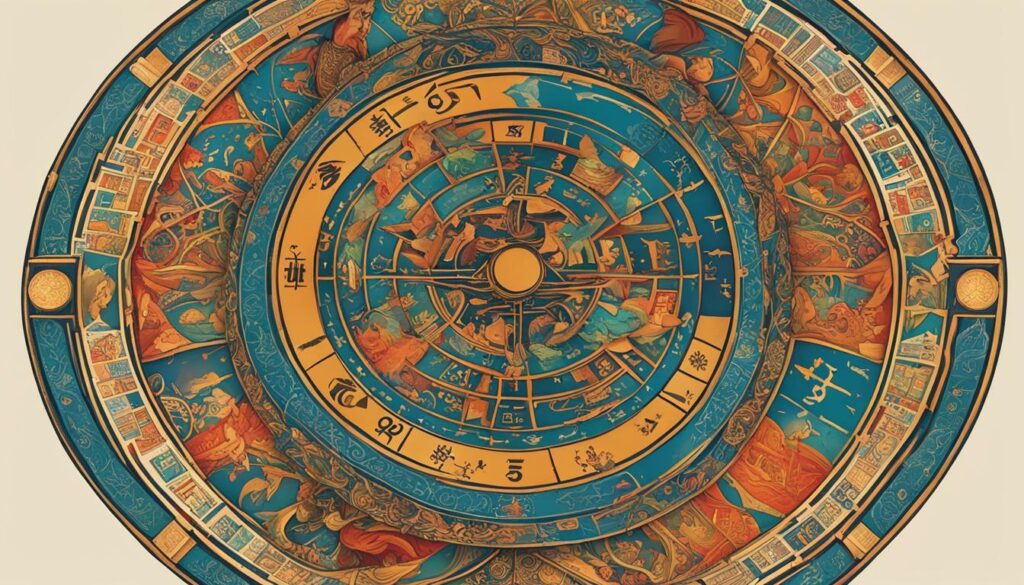
As we continue to explore numerology in different cultures, it’s important to approach it with an open mind and use it as a tool for self-reflection and personal growth. Numerology is not a science, but it is rooted in scientific principles and has been practiced for centuries. By embracing its teachings, we can tap into the wisdom of ancient cultures and uncover hidden truths about ourselves and our place in the world.
Numerology as a Tool for Self-Discovery
Numerology is more than just a study of numbers; it provides individuals with valuable insights into their own selves and their place in the world. It serves as a powerful tool for self-discovery and personal growth, offering guidance and clarity in various aspects of life. By understanding the principles of numerology across cultures, individuals can unlock their unique strengths, navigate challenges, and gain a deeper understanding of their life’s purpose.
Core numbers, such as the life path number, expression number, soul urge number, personality number, and birthday number, play a crucial role in numerology. These numbers offer profound insights into an individual’s personality traits, desires, and how others perceive them. By calculating these core numbers using birth dates and names, individuals can uncover hidden aspects of themselves and gain a better understanding of their life’s purpose.
One of the most significant numerology practices is the study of angel numbers. These are repeated numbers that carry divine messages from the universe. Understanding the meaning behind these numbers can provide individuals with guidance and reassurance in their journey of self-discovery. Additionally, Pythagorean numerology, which assigns numerical values to alphabets, is widely used to predict various aspects of an individual’s life, including relationships, career, and personal growth.
Numerology, while not considered a science, is based on scientific principles and the universal laws of energy. When practiced by knowledgeable individuals, numerology can provide accurate and meaningful insights. It is important, however, not to rely solely on numerology for decision-making but to use it as a tool for self-reflection and personal growth. By combining numerology with self-awareness and intuition, individuals can unlock their true potential and create a life aligned with their unique purpose.
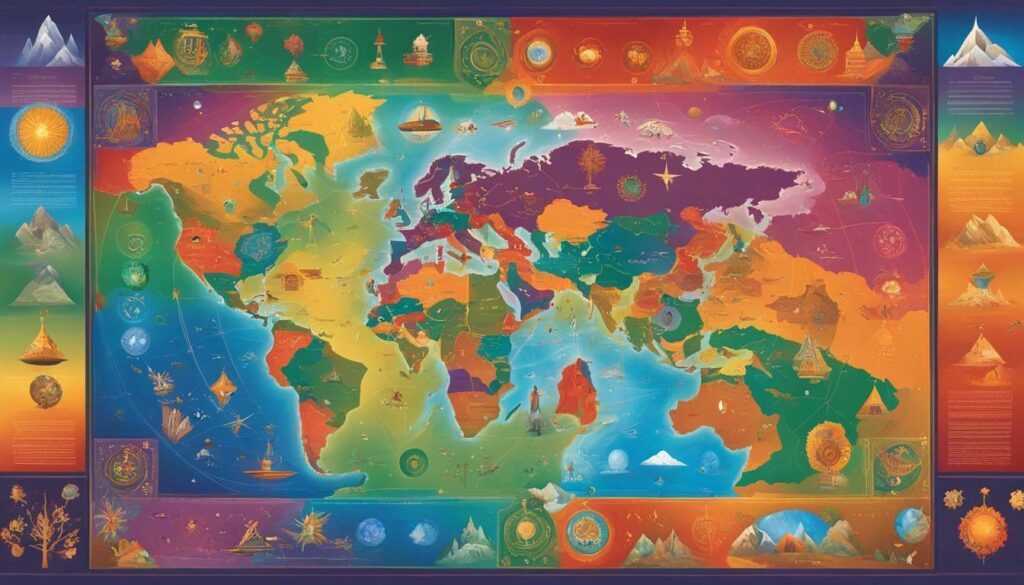
“Numerology has been a guiding force in my life. It helped me discover my life path number, which revealed my true purpose and passion. Understanding my personality number gave me insights into my strengths and weaknesses, allowing me to navigate my personal and professional relationships more effectively. Numerology has become an essential tool in my journey of self-discovery and personal growth.”
Key Takeaways:
- Numerology provides individuals with valuable insights into themselves and their place in the world.
- Core numbers in numerology reveal an individual’s personality traits, desires, and life’s purpose.
- Angel numbers and Pythagorean numerology offer additional guidance and predictions.
- Numerology should be used as a tool for self-reflection and personal growth, not as a sole decision-making method.
The Significance of Numerology in Modern Life
While rooted in ancient cultures, numerology continues to hold significant relevance in the modern world. This ancient practice of studying numbers and their vibrations has evolved over time, adapting to different cultures and societies. Today, numerology serves as a powerful tool for self-discovery, personal growth, and making informed decisions in various aspects of life.
One of the key aspects of numerology is understanding the core numbers that are associated with an individual’s life and personality. These core numbers, such as the life path number, expression number, soul urge number, personality number, and birthday number, provide valuable insights into different aspects of a person. By calculating and interpreting these numbers, individuals can gain a deeper understanding of their purpose, talents, desires, and how others perceive them.
| Numerology Basics | Cultural Numerology |
|---|---|
| Involves the belief in vibrational energies associated with numbers | Widely practiced in different cultures, including Chaldean, Kabbalah, Tamil, and Western/Pythagorean numerology |
| Provides insights into an individual’s life and personality through core numbers | Adapts to cultural beliefs and practices, reflecting the diversity of human experiences |
By incorporating numerology into their daily routines, decision-making processes, and personal relationships, individuals can harness the power of numbers to gain clarity, focus, and a deeper sense of purpose. Numerology also includes the concept of angel numbers, which are repeated numbers that carry special messages from the universe. These messages can guide individuals on their path towards personal growth and fulfillment.
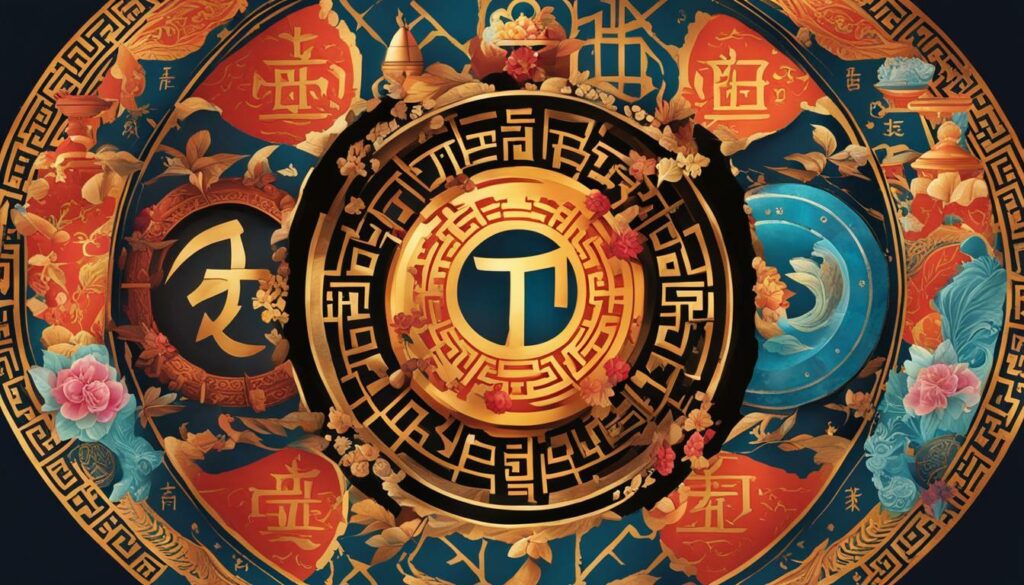
In conclusion, numerology is not just an ancient practice but a timeless tool that has stood the test of time. While it may not be considered a science, it is based on scientific principles and offers valuable insights when practiced by knowledgeable individuals. Whether you are seeking guidance, self-discovery, or a better understanding of the world around you, numerology can serve as a reliable companion on your journey of personal growth and transformation.
Conclusion
Exploring basic numerology cultures offers a fascinating insight into the power of numbers and their influence on our lives. Numerology, which has been practiced since ancient times, reveals the significance of numbers in shaping our destiny and understanding our true selves.
From the origins of numerology in civilizations such as Babylon, Egypt, and Greece, to its integration into different cultures worldwide, numerology is a universal language that resonates across borders. It encompasses various traditions like Chaldean, Kabbalah, Tamil, and Western/Pythagorean numerology, each offering unique insights into the human experience.
Numerology goes beyond mere calculations and holds the key to unlocking our personal potential. By understanding core numbers such as the life path number, expression number, and birthday number, we gain valuable insights into our talents, desires, and life’s purpose. Numerology serves as a powerful tool for self-discovery and personal growth, allowing us to tap into our unique strengths, navigate challenges, and make informed decisions.
While numerology is not a science, it is based on scientific principles and the universal laws of energy. By integrating numerology into our daily lives, we can gain a deeper understanding of ourselves and the world around us. It is important, however, to approach numerology with a balanced perspective, using it as a tool for self-reflection and personal growth rather than relying solely on its insights.
FAQ
What is numerology?
Numerology is the study of numbers and their relationship to events and incidents in life. It assigns a value to each alphabet and can be used to determine the quality of a person’s life and personality.
Where did numerology originate?
Numerology has been practiced since ancient times, with origins in Babylon and Egypt. Different forms of numerology were also practiced in China, Rome, and Japan.
Who is considered the father of modern numerology?
Greek philosopher Pythagoras is considered the father of modern numerology.
What are core numbers in numerology?
Core numbers in numerology include the life path number, expression number, soul urge number, personality number, and birthday number. These numbers reveal insights about an individual’s purpose, talents, desires, and how others perceive them.
How are core numbers calculated?
Calculating core numbers involves adding or reducing digits from birth dates and names.
What is the significance of numerology in personal growth?
Numerology is a tool for self-discovery and personal growth, providing guidance and clarity in various aspects of life. It can help individuals tap into their unique strengths, navigate challenges, and understand their life’s purpose.
What are angel numbers in numerology?
Angel numbers are repeated numbers that signify messages from the universe.
What is the most important numerology number?
The most important numerology number is the life path number, which reveals an individual’s destiny and life purpose.
What is Pythagorean numerology?
Pythagorean numerology is a widely used system that assigns numerical values to alphabets.
Is numerology a science?
Numerology is not a science, but it is based on scientific principles and the universal laws of energy. It can provide accurate insights when practiced by knowledgeable individuals.
